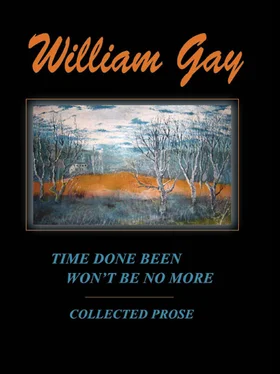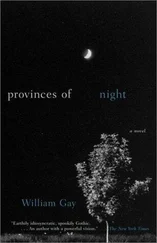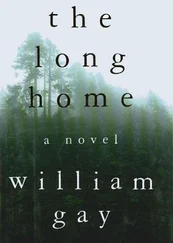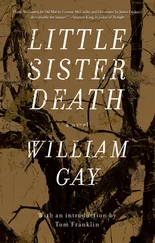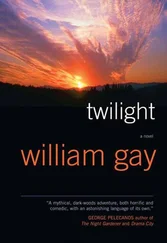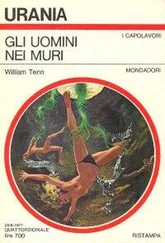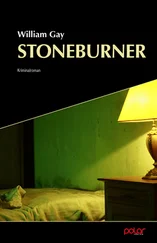But never mind. This audience could take it in stride. They had come to have a good time, and by God they were going to have a good time.
There is some kind of common bond between participant and observer; common heritage maybe, the unspoken reverence for certain values: Family, home, and the tattered remains of the American Dream. Disparate elements of the audience mingled as easily as Freemasons meeting far from home and exchanging the password. Except here no password was needed. The fact that you were here seemed password enough.
The second day was sunny and as perfect as days in April get, and the shuttles were busy early ferrying folks down to the main gate. The parking lot is a mile or so from the festival, and buses carry festival-goers down a winding road to the entrance. Watching this potential audience disembark you are struck by the fact that there seems to be no type, no average, and that every spectrum of America is represented: middle-aged hippies and their new SUV driving yuppie offspring; farmers and farmers’ wives; factory workers; the well-off in expensive outdoor gear from L.L. Bean; and longhaired young men in beards and fool’s motley who seemed determined to be ready should the ‘60s clock around again.
And just as you are about to decide that there is no common element among the spectators, you notice the percentage of people carrying instruments. Guitars and banjos in hardshells. Cased fiddles tucked under the arm and God knows how many harmonicas pocketed like concealed weapons.
You don’t see this at a rock concert or at the Grand Ole Opry, folks coming equipped to make their own music should the need arise. But bluegrass is widely perceived as handmade music, as opposed to, say, the output of song factories on Nashville’s Music Row. The people who love bluegrass love it enough to learn to play it, and they are intensely loyal to the music, to the performers, and to one another. That love of music is the common factor, the source of the brotherhood that seems to radiate off the audience like good vibrations.
Music is always in the air here. Wandering past tents and the open-air stages, you hear it segue from bluegrass to old-time rustic to a tent where a Cajun saws his fiddle at breakneck speed, and young girls jerk and sway with their partners on sawdust-strewn floors. There are vendors everywhere. MerleFest is a growth industry. Attendance has grown every year that the festival has been in existence, but not as fast as the number of vendors and service providers: You can buy the usual tapes and CDs of your favorites, t-shirts and sweatshirts and blankets and plaster busts of musicians and folk art and homemade jewelry; Italian food and Mexican food and down-home American food; anything you want to drink, unless you want it to contain alcohol, alcohol is forbidden on the festival grounds.
During the course of the four-day festival, you learn that a lot of these people know one another. They know one another well enough to remember the names of their respective children and what everybody does for a living. They will meet again before the year is out, whether they live in Alabama or Pennsylvania. They begin in the spring, at MerleFest, and through the careful allocation of vacation days or the advent of three-day weekends, their paths will cross at bluegrass festivals in the South, or in Midwestern states like Michigan or Indiana, where bluegrass is almost a religion. They will see the shows and late in the day will get together and grill out and catch up on old times. Likely they will drink a beer or two and make a little music themselves.
Like family. In a sense they are a family, loose and nomadic but keeping in touch, and at the very bottom of this family is what they believe bluegrass music is all about.
Family and Doc Watson
Doc Watson, blinded by an eye infection during infancy, first learned to play the harmonica. From there he went to a banjo with a drum made from the skin of a house cat. But when he’d listen to records, the guitar was what he liked, and he began fooling around with one his brother had borrowed. His father heard Doc and told him that if he could learn a song by the end of the day, then he would buy Doc one of his own. When his father came in from work that night, Doc played When Roses Bloom in Dixieland, and the next day Doc owned his first guitar.
Watson was playing on the radio at age nineteen, and in the years between learning that first song and becoming an icon, he played roadhouses and church socials and square dances. He played all kinds of music, country, rockabilly, swing, Appalachian ballads about young women wronged by their lovers.
It is amazing to listen to the Folkways records Doc made with Clarence Tom Ashley in the early days of the ’60s. His style seems fully formed: the complex picking, the impeccable interaction between bass and treble strings, the breathless, death-defying runs he interjects into spaces of time so small there seems scarcely room to accommodate them. You keep listening for him to miss a note, deaden a string, but he does not. There have been countless long and drunken arguments over how many guitars, one or two, were playing on a particular track. It was one guitar, Doc’s guitar.
In every great performer’s life there are watershed concerts, events that forever alter the rest of the career from what has gone before. For Doc one of these came in 1963, when he was brought to the Newport Folk Festival by the folklorist Ralph Rinzler. Doc was forty-one years old. He sang about blackberry blossoms, shady groves, houses of the rising sun, and the sad fatalism of sitting on top of the world. When he began, he was an unknown guitarist with a pleasant baritone, on a long and winding road from Deep Gap, North Carolina. When he was helped from the chair and led from the stage, he was on his way to a contract with Vanguard Records, and he had reinvented forever the way folk musicians approached the guitar.
As has been said, there are more than a hundred performers here, and there are no slouches. These are the heavy hitters and brand-name pickers of bluegrass, everyone from hardshell traditionalists to the avant-garde, folks who through virtuoso playing and infusions from jazz are moving bluegrass into new and uncharted territory.
But no one questions what this thing is all about.
The Texas singer-songwriter Guy Clark usually performs his song Dublin Blues during his sets, a song that has the quatrain:
I have seen the David
I’ve seen the Mona Lisa too
I have heard Doc Watson
Play Columbus Stockade Blues
At the mention of Watson’s name there is an outbreak of applause, thunderous and spontaneous. It happens the same way before different audiences each time Clark performs the song.
When Doc is led up the wooden steps to the stage, he approaches from the rear, and the first thing you see is his silver hair. At the first sight of it, the audience erupts. Doc is guided across the stage to where folding chairs have been positioned before the microphones. He is assisted into a chair, and he feels for the guitar in the open case beside his seat. He takes the guitar and sits cradling it, his face turned toward the crowd he can feel but not see, waiting until the applause dies down.
A stocky young man with a black beard has seated himself in the chair beside Doc’s. He has taken up a guitar as well. He touches Watson’s arm, and Watson leans toward the microphone.
This is my grandson Richard, he says, and he’s going to help me out a little here. This is Merle’s boy.
The crowd erupts again. The torch has been passed.
Doc’s guitar kicks off a set of country blues, old Jimmie Rodgers songs, and the song Clark referenced. The third generation holds his own with ease, as if perhaps guitar playing was simply a matter of genetics.
Читать дальше
